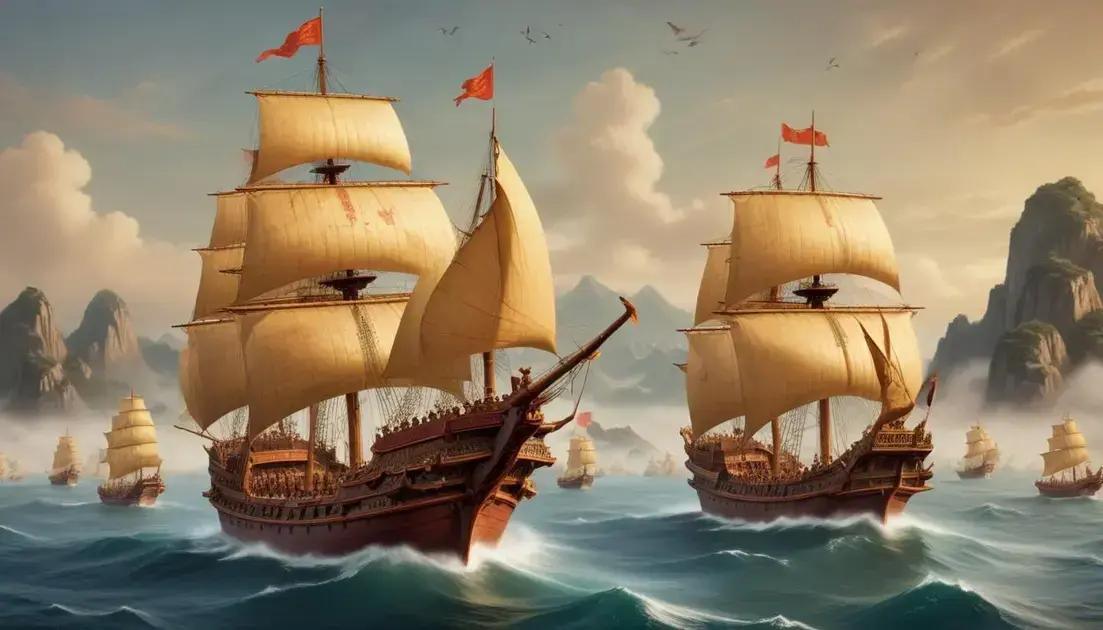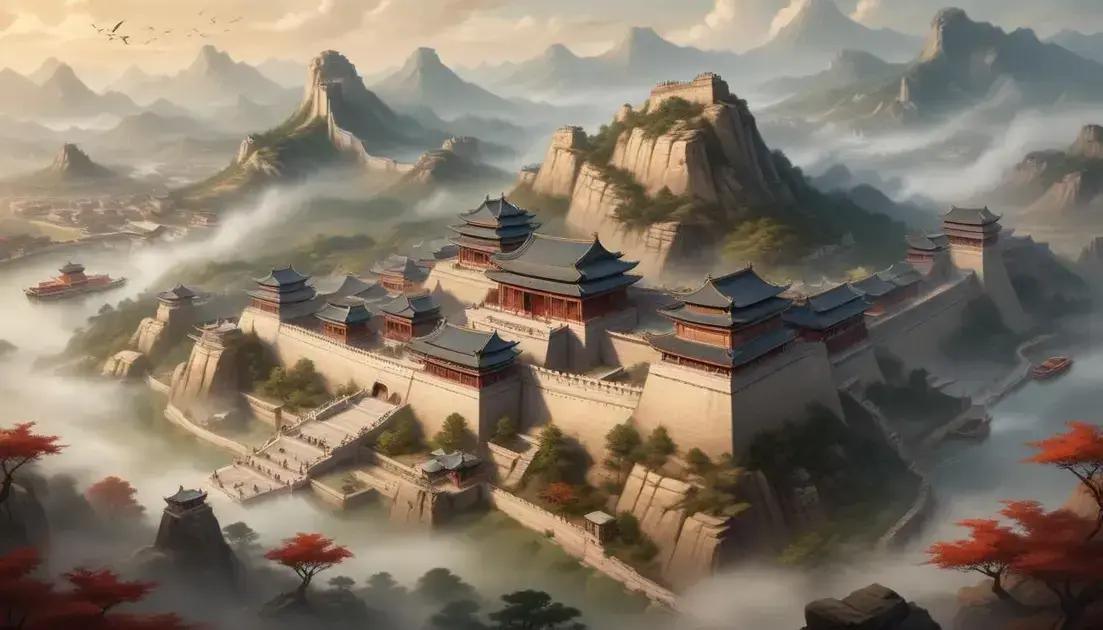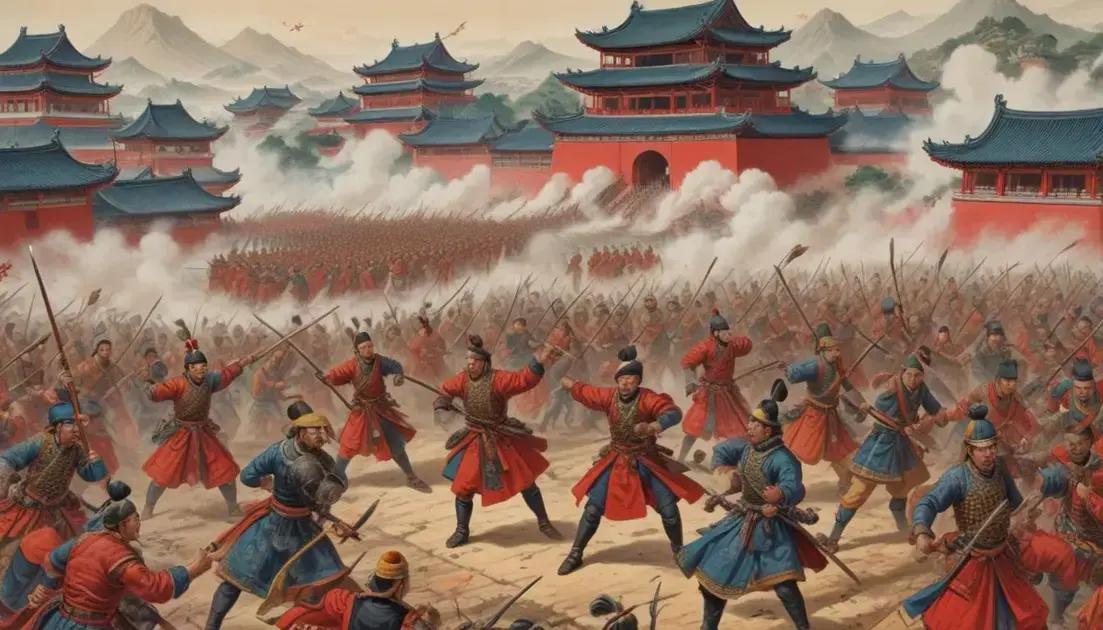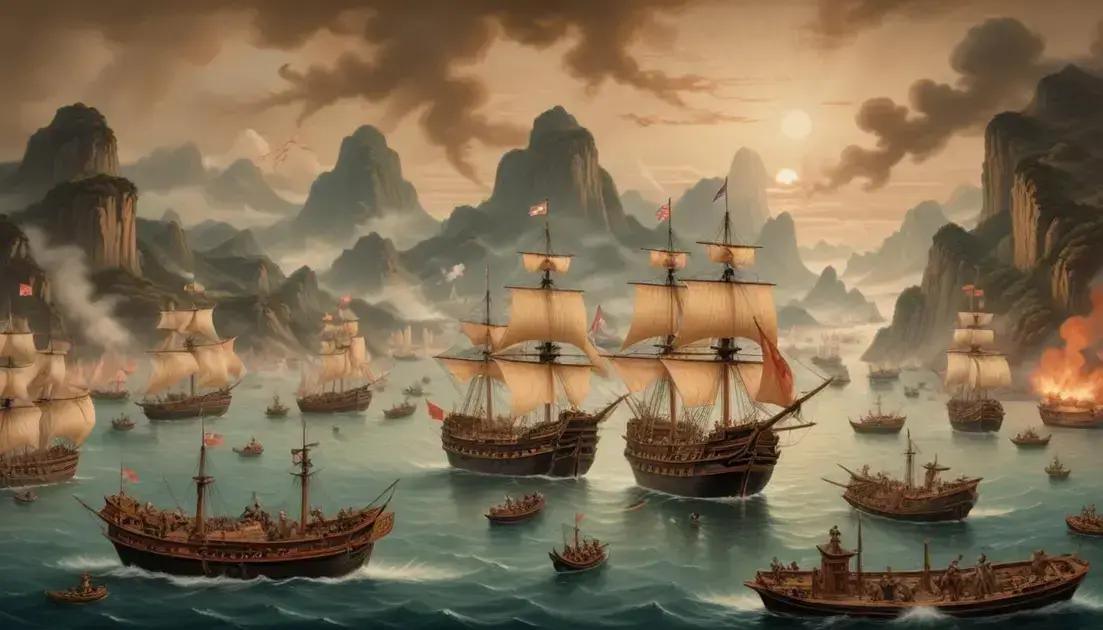
Zheng He: The Chinese Admiral Who Reached Africa
Zheng He was a famous Chinese admiral in the Ming Dynasty known for his impressive voyages across Asia and Africa. His expeditions significantly impacted global trade and diplomacy, expanding trade routes and establishing important relationships with various cultures. Through these interactions, Zheng He fostered cultural exchanges, sharing Chinese knowledge while learning from others. His legacy exemplifies the spirit of exploration and the importance of cooperation between nations, making him a pivotal figure in history.
Have you ever heard of Zheng He? This remarkable Chinese admiral sailed the seas and reached Africa long before many European explorers. His adventures are not just tales of exploration; they shaped a significant era in history.
The life of Zheng He
Zheng He was born in 1371 in a small village in China. He came from a Muslim family. His birth name was Ma He. As a young boy, Zheng He faced hardship. He was captured and taken from his home by soldiers of the Ming Dynasty.
Once he arrived in China, Zheng He was taken as a servant. He worked hard and showed great talent. Soon, he caught the attention of the Ming Emperor, Yongle. The emperor saw Zheng He’s skills and made him a trusted aide.
In 1405, Zheng He led his first grand voyage with a fleet of ships. His ships were massive and could carry many people and goods. He traveled across the South China Sea and reached places like Southeast Asia and the Indian Ocean.
Zheng He’s journeys were not just about exploration. They aimed to expand trade and establish relationships with other nations. He visited over thirty countries, including India and the coast of Africa. Each stop helped build strong ties with different cultures.
One fascinating feature of Zheng He’s travels was his crew. They included sailors, soldiers, and scholars. This mix allowed them to learn from different lands and share Chinese culture.
Sadly, after Zheng He’s final voyage in 1433, his expeditions stopped. The Ming Dynasty shifted its focus inward. Yet, Zheng He’s legacy remains. He is remembered as a symbol of exploration and cultural exchange.
Significance of Zheng He’s voyages
Zheng He’s voyages had a huge impact on global trade and cultural exchange. His trips started in 1405 and lasted for almost three decades. During this time, he traveled to over thirty countries, connecting China with many different cultures.
One of the key significances of these voyages was trade. Zheng He opened up new trade routes. He brought back exotic goods like spices, precious stones, and even animals. These items were highly valued in China.
Another important aspect was diplomacy. Zheng He impressed many foreign leaders with his grand fleet. By showing strength and offering gifts, he built friendly relations. This helped China gain respect and establish itself as a powerful nation.
The cultural exchange during his travels was remarkable. Chinese culture spread to other parts of Asia, while Zheng He also learned about local customs. He brought back knowledge about navigation and shipbuilding, which improved Chinese maritime skills.
Zheng He’s voyages showed the world that China was not just a land of great wealth but also of great ideas and people. The mingling of cultures led to shared knowledge in science, art, and even religion.
In the end, Zheng He’s journeys marked a key period of exploration. They set the stage for future maritime adventures, not just by China but by others as well. His legacy remains significant in the history of exploration and global exchange.
Impact on trade and diplomacy
Zheng He’s voyages had a major impact on trade and diplomacy during the Ming Dynasty. His travels opened new trade routes. These routes made it easier to exchange goods with other nations.
Trade flourished as Zheng He visited far-off lands. He traded silk, tea, and ceramics for exotic spices, precious gems, and even exotic animals. This boosted China’s economy and made it a center of international trade.
Along with trade, Zheng He built strong diplomatic ties. His large fleet impressed foreign leaders. When he arrived at ports, he often brought gifts. These gifts showed respect and helped create friendships.
Diplomacy was vital for peace and cooperation. Zheng He’s work helped to establish treaties. Many countries wanted to be allies with China due to his efforts.
Through his voyages, the mingling of cultures increased. People shared ideas, beliefs, and techniques. For example, Zheng He learned about navigation skills from other cultures and shared Chinese innovations, too.
Zheng He’s influence on trade and diplomacy set a foundation for future interactions. His ships brought not just goods but also knowledge and understanding between nations. This legacy impacted the world long after his travels ended.
Cultural exchanges during the expeditions
Cultural exchanges during Zheng He’s expeditions were truly remarkable. As he traveled to various countries, people from different cultures met and shared ideas. This exchange shaped not just trade but also understanding between nations.
Zheng He and his crew brought Chinese culture with them. They shared art, technology, and even food. This helped others learn about China’s rich history and customs.
At the same time, Zheng He learned from the cultures he encountered. He discovered new navigation techniques and trading practices. These insights improved Chinese maritime skills and broadened their horizons.
Local customs, traditions, and languages also fascinated Zheng He. He respected the different ways people lived. By building friendships, he helped create a spirit of cooperation.
This blend of cultures led to amazing innovations. For example, Chinese medicine mixed with local practices, creating new treatments. The connections made through these exchanges also influenced art, music, and even religion.
Zheng He’s journeys paved the way for a deeper understanding of the world. His voyages did not just bring goods but built bridges between diverse cultures, enriching both sides.
Legacy of Zheng He and the Ming Dynasty
Zheng He’s legacy and the impact he had on the Ming Dynasty are still felt today. His voyages opened the world to China. He connected different cultures through trade and exploration.
One key aspect of his legacy is the expansion of trade routes. Zheng He’s journeys paved the way for future maritime activities. They showed how important trade was for China’s economy.
His efforts also influenced the perception of China globally. Many countries saw China not just as a land of riches, but as a center of knowledge and respect. This enhanced China’s status on the world stage.
The Ming Dynasty benefited greatly from Zheng He’s accomplishments. His expeditions brought wealth, new ideas, and even exotic goods. This exchange enriched Chinese culture and society.
Moreover, Zheng He’s legacy promotes the spirit of exploration. Today, he serves as an example for voyagers and explorers worldwide. His courage helped break down barriers between cultures.
While official voyages ended after Zheng He, his influence did not fade. His story inspires future generations. His voyages remind us that exploration can lead to understanding and friendship among different peoples.
Conclusion
In conclusion, Zheng He’s voyages had a lasting impact on trade, diplomacy, and cultural exchange during the Ming Dynasty. His journeys opened doors to new trade routes and strengthened relationships with other nations. Through these interactions, he shared Chinese culture while learning from others, enriching both sides.
Zheng He’s legacy teaches us the value of exploration and understanding. His courage and dedication paved the way for future explorers. Today, he remains a symbol of how connections between different cultures can lead to growth and cooperation. By remembering his accomplishments, we can inspire a spirit of curiosity and respect across the globe.


